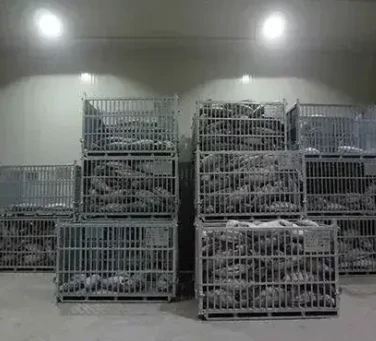Industrial Chiller Operation and Maintenance Training Program for Technicians and Engineers
Industrial Chiller Training Facility Enhancing Skills for a Sustainable Future
In today's rapidly evolving industrial landscape, the efficient management of cooling systems is crucial for ensuring optimum operational performance and sustainability. Industrial chillers play an essential role in various sectors, including manufacturing, pharmaceuticals, and food processing, by maintaining temperature control and enabling process efficiency. Recognizing the importance of skilled personnel in this field, the establishment of dedicated industrial chiller training facilities has become a fundamental step toward cultivating expertise and promoting energy-efficient practices.
Importance of Industrial Chiller Training
Industrial chillers are complex systems that provide cooling by removing heat from liquids through vapor-compression or absorption refrigeration cycles. Their effective operation is vital for production processes that require precise temperature management. As industries strive to meet increasing standards for energy efficiency and environmental sustainability, the necessity for skilled technicians who understand chiller operation and maintenance becomes paramount.
Training programs designed specifically for industrial chillers equip personnel with the knowledge and hands-on experience required to operate and troubleshoot these systems. Such training ensures that operators can recognize signs of inefficiencies, implement preventive maintenance strategies, and understand the latest advancements in chiller technology. When employees are well-versed in chiller operations, it promotes not only better energy use but also reduces downtime and operational costs.
Curriculum and Hands-on Experience
A well-structured training curriculum for an industrial chiller training facility typically includes both theoretical and practical components. Theoretical training covers topics such as refrigeration cycles, thermodynamics, system components, and energy efficiency measures. Trainees learn about different types of chillers, including air-cooled and water-cooled systems, and their respective applications. Additionally, the curriculum focuses on safety protocols, regulatory standards, and troubleshooting procedures.
The practical aspect of training is often delivered in a workshop environment where participants can engage with real chiller systems. Hands-on training enables technicians to perform tasks such as routine maintenance, leak detection, and system optimization under the guidance of experienced trainers. Utilizing simulators and interactive technology can further enhance the learning experience by allowing trainees to practice their skills in a controlled setting without risking damage to actual equipment.
industrial chiller training factory

Advancements in Chiller Technology
As technology advances, so too do the capabilities of industrial chillers. Modern chiller systems are increasingly equipped with smart technologies that allow for remote monitoring and data analysis. Training programs must adapt to these innovations by including modules that cover smart chiller management systems, energy management software, and IoT integration. This forward-thinking approach prepares trainees to handle contemporary challenges in the industry and encourages a culture of adaptability.
Sustainability and Energy Efficiency
Sustainability is a driving force behind the evolution of industrial cooling solutions. Training facilities play a pivotal role in educating technicians about environmentally friendly practices, such as the use of low-global warming potential (GWP) refrigerants and energy-efficient operating methods. By instilling these values, training programs not only contribute to the professional development of technicians but also align with global efforts to mitigate climate change.
Furthermore, well-trained technicians are better equipped to conduct energy audits and implement improvements that can lead to significant reductions in energy consumption. As industries become more conscious of their environmental impact, the demand for skilled personnel in energy management will continue to grow.
Conclusion
An industrial chiller training facility serves as a cornerstone for developing the expertise necessary to support efficient and sustainable cooling practices in various industries. By focusing on comprehensive training that encompasses theoretical knowledge, hands-on experience, and modern technological advancements, these facilities are preparing a workforce that can adapt to the challenges of the future. As industries continue to prioritize energy efficiency and environmental sustainability, investing in specialized training will yield beneficial returns for both businesses and the planet. In an era where resilience and innovation are essential, the role of trained technicians in managing industrial chillers can never be overstated.
















































































































